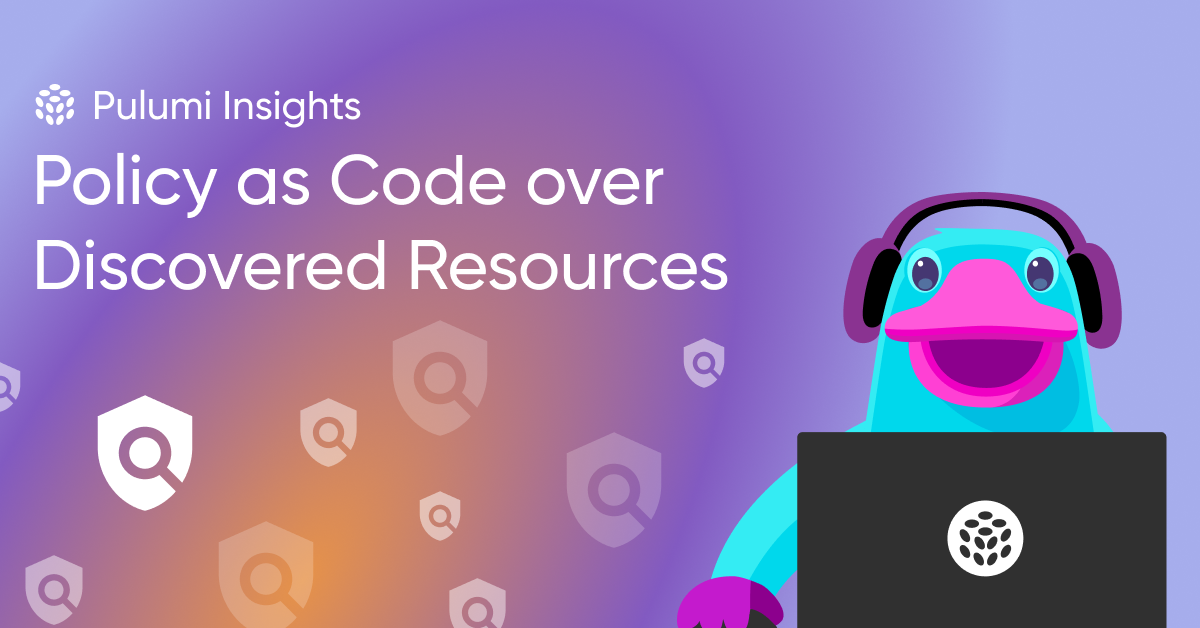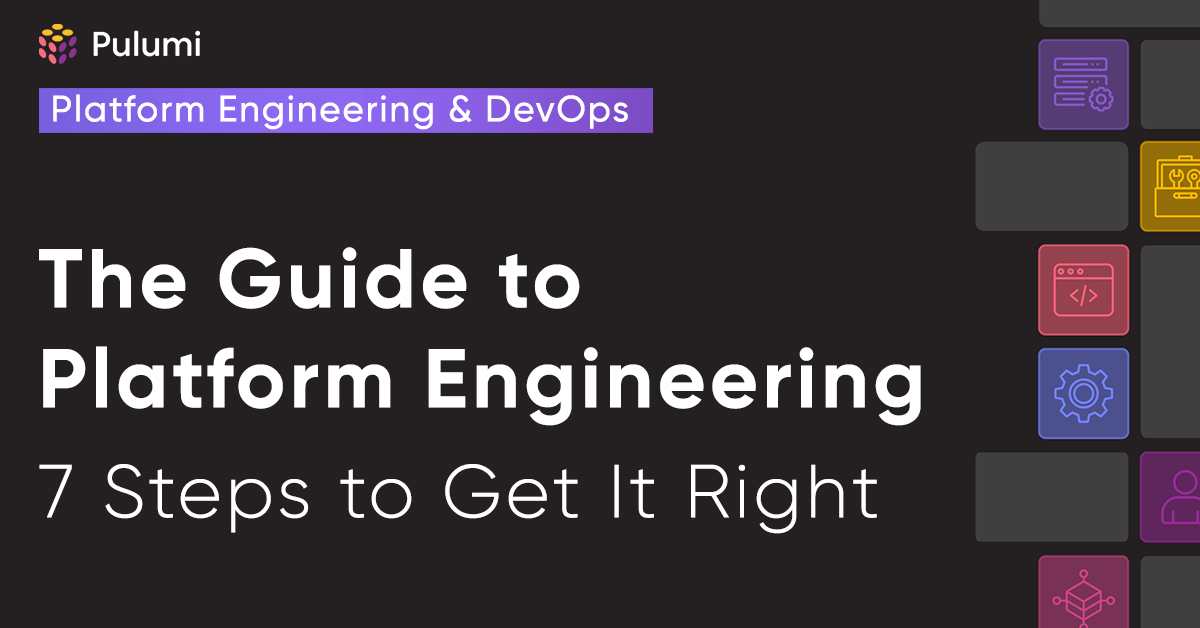Manage Cloud Visibility and Governance with Infrastructure as Code

Do you know what cloud resources are running in your environment right now? Many organizations struggle to maintain visibility across their cloud estate, especially for resources created outside of infrastructure as code. Without complete visibility, you can’t enforce compliance, optimize costs, or identify security risks.
Today, we’re excited to announce new resources in the Pulumi Service Provider that solve this problem by enabling you to discover all cloud resources and enforce governance policies programmatically using infrastructure as code.








